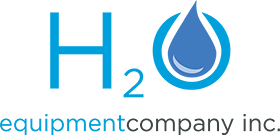
Buying a new home can be overWELLming!
But it does not have to be. There are several tests to determine what’s in your water and if your water is safe to drink. The most common is called the Basic Profile (or Standard Water Analysis).
Basic Water Test
The following tests are usually part of the “Basic Profile” water test.
Bacteria and Chlorine
Coliform and E. Coli bacteria – presence of either bacteria in your water will result in the water being “not safe for drinking purposes”
Chlorine – can be common for municipal water or communal wells. Chlorine can impact the ability to test for E. Coli and Coliform (chlorine will kill the bacteria.).
TIP: If you are purchasing a home that is on municipal water let the company testing your water know, and they can provide a special bacteria bottle treated with a chemical to neutralize the chlorine and allow them to test for the presence of E. Coli and Coliform.
Physical Parameters
pH – Measure of water acidity. Any value below 7 is considered “acidic” and can damage plumbing.
Turbidity – Measure of opacity (or clarity) of the water
Color – Is there a color to the water (presence of iron can turn it orange for example)
Odor – Is there a “rotten egg” smell in the water
Chemicals
Flouride – Rare in private wells, can be present in municipal water. Values over 4mg/L will result in the water being “not safe for drinking purposes” at the time of collection.
Chloride – Can be from road salt runoff. Values over 250mg/L will result in the water being “not safe for drinking purposes” at the time of collection.
Nitrite – Can be from fertilizers in agricultural communities. Values over 1mg/L will result in the water being “not safe for drinking purposes” at the time of collection.
Nitrate – Can be from fertilizers in agricultural communities. Values over 10mg/L will result in the water being “not safe for drinking purposes” at the time of collection.
Sulfate – Can contribute to scale build up in pipes and cause a bitter taste to water. Values over 250mg/L should be remediated.
Calcium – Naturally occurring mineral in all water. There is no set limit on Calcium in water.
Magnesium – Naturally occurring mineral in all water. There is no set limit on Magnesium in water.
Hardness – Values over 3 grains (60 mg/l) can cause scale build up, frizzy hair, clogged fixtures and dry skin.
Sodium – High levels can impact health, cause a salty taste and contribute to scale build up in pipes. Values over 100mg/L will result in the water being “not safe for drinking purposes” at the time of collection.
Copper – Can impact health if present in high quantities. Values over 1.3mg/L will result in the water being “not safe for drinking purposes” at the time of collection.
Iron – Can cause reddish-brown staining, metallic taste/smell and build up in fixtures and plumbing. Values over .3mg/L will cause staining and should be remediated.
Manganese – Can impact health if present in high quantities. Values over .05mg/L will result in the water being “not safe for drinking purposes” at the time of collection.
Not Included in the Basic Water Test – But Highly Recommended
Radon – Radon can occur both in the air and in your water. Radon in your water will escape as a gas every time you turn on your faucet, especially in the shower.
Per the state of Connecticut, Radon levels in your water over 5000pCi/L are considered a health risk and will result in the water being “not safe for drinking purposes” at the time of collection.
Lead – CT waters rarely have naturally occurring lead and copper, so a positive test for those metals typically indicates acidic water. Acidic water will cause the copper to be leached from the pipes. If that is the case, you may need a Water Neutralizer to neutralize the low pH. Learn more about a Water Neutralizer here.
Values over 15ug/L are a health hazard and will result in the water being “not safe for drinking purposes” at the time of collection.
Arsenic/Uranium – More attention has been paid to Arsenic and Uranium in the last few years, and it is showing up in well water across the state of Connecticut. Both Arsenic and Uranium are considered health hazards and should be remediated. Arsenic is limited to 10ug/L while Uranium is limited to 30ug/L. Both are considered a health risk and levels over the limit will result in the water being “not safe for drinking purposes” at the time of collection.
Remember – any water testing is a one-time event and does not guarantee that you will not have any future contamination.
It is recommended that you test your water annually! Find out more about water tests H2O can help you with if you are buying or selling a home.
